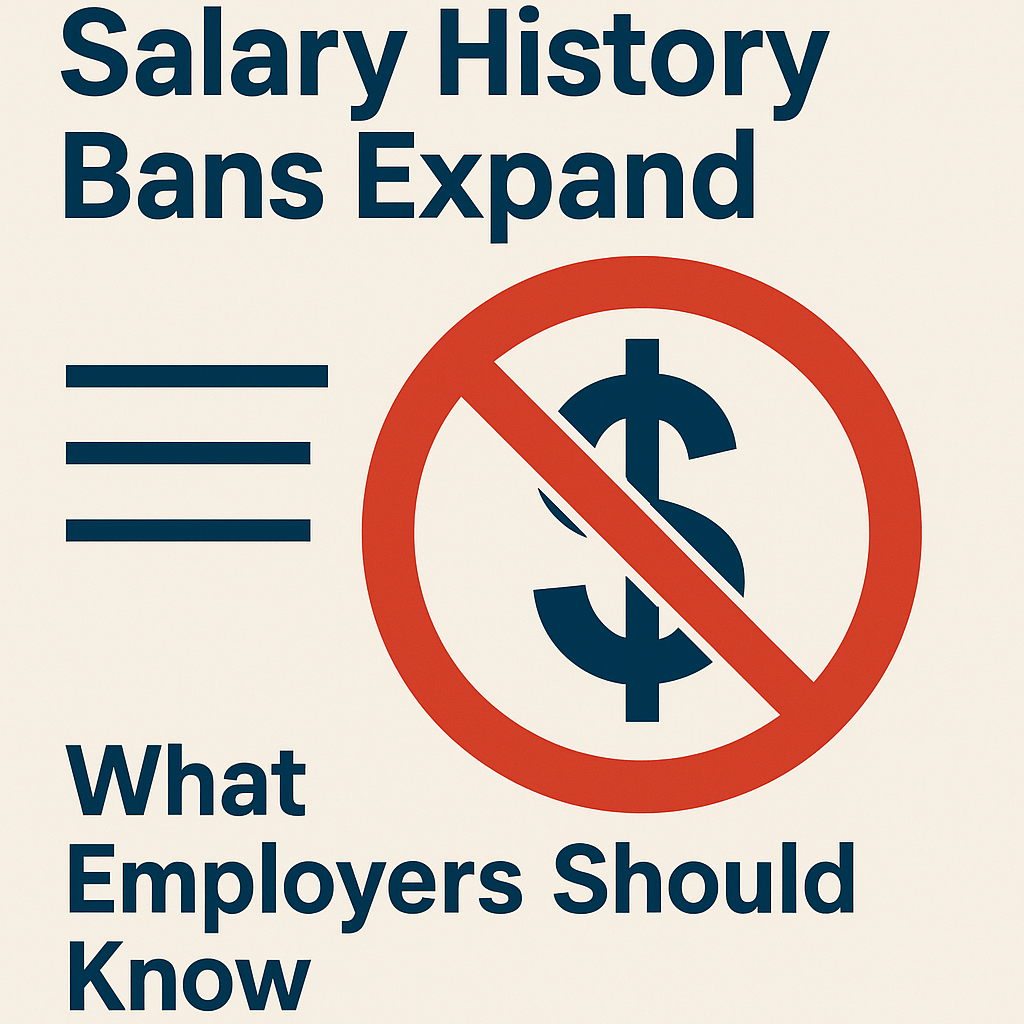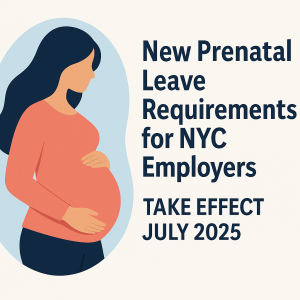Salary History Bans Continue to Expand: What Employers Must Know to Stay Compliant
May 25, 2025
Employers across the country are facing increasing regulation when it comes to salary history inquiries. As of May 2025, 22 states and 24 local jurisdictions have implemented laws that limit or outright prohibit employers from asking job candidates about their prior compensation.
These laws are designed to reduce pay inequities by breaking the cycle of basing future compensation on prior wage disparities—especially those that disproportionately affect women and people of color.
Key Provisions Across Jurisdictions
While the specific rules vary, most salary history bans include at least one of the following restrictions:
- Employers may not ask applicants about current or past wages or benefits.
- Employers may not use known salary history to determine pay, even if volunteered.
- Employers must provide a pay range for a position upon request—or proactively, as in New York and New Jersey.
- Employers may not discipline or retaliate against employees for discussing wages with others.
Some jurisdictions, such as New York, New Jersey, California, and Colorado, now require proactive pay transparency, further limiting an employer’s discretion in setting compensation based on internal benchmarks or negotiation dynamics.
Employers should also note that in jurisdictions where a ban exists, even indirect discovery of salary history (e.g., via background checks or informal discussions) may not be used to influence compensation decisions.
What Employers Should Do Now
To comply with this evolving landscape:
- Audit your hiring and interview practices to remove all salary history questions.
- Train hiring managers and recruiters on what can and cannot be asked.
- Ensure that offer letters and negotiations are based on predefined compensation ranges.
- Monitor multistate compliance if you operate across jurisdictions, especially with local-level ordinances layered on top of state law.
Pay transparency and salary history compliance are increasingly linked. Employers must move away from reactive compliance and instead take a proactive, standardized approach to setting and communicating compensation.
For help reviewing your hiring policies or implementing wage transparency protocols, contact Sheryl Galler at sgaller@booklawllp.com or Chaim Book at cbook@booklawllp.com.


